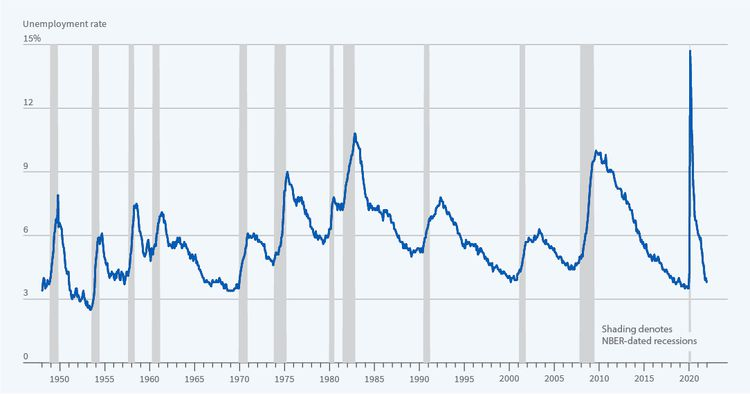The prospect of a U.S. economy recession looms large as various factors combine to create a precarious economic environment. Recent heavy losses in U.S. markets have sparked concerns over a prolonged trade war, particularly stemming from tariff increases initiated by the current administration. As foreign nations like China and Mexico retaliate with their own levies on American products, the ripple effects are felt across consumer confidence—a sentiment echoed by the declining consumer sentiment index. Furthermore, the Federal Reserve faces the daunting task of navigating interest rate decisions amidst rising inflation pressures and economic uncertainty. The interplay of these dynamics signals an uncertain U.S. market outlook, leaving many anxious about the potential long-term implications of our current economic trajectory.
As the United States grapples with the possibility of economic downturn, many are asking what lies ahead for the nation’s financial health. With current events suggesting a potential recession, analysts are closely monitoring key indicators such as consumer sentiment and governmental fiscal policies. The ongoing trade conflict has triggered a wave of investor apprehension, creating a complex web of challenges that the Federal Reserve must address through interest rate management. Tariff effects continue to unfold, influencing various sectors and raising concerns about overall market stability. The landscape is filled with speculation, as stakeholders brace for the ramifications of these tumultuous changes on the future of the U.S. economy.
Understanding the U.S. Economy Recession Risks
The potential for a U.S. economy recession has become a central topic among economists and market analysts. Recent signs indicate that economic indicators are leaning towards negative territory, primarily influenced by the ongoing trade war and rising tariffs. The consumer sentiment index, a crucial measure of consumer confidence, has hit its lowest point since late 2022, prompting fears that if this trend continues, consumer spending will decline. This situation is especially alarming because consumer spending drives a significant portion of the U.S. economy, and a weakened sentiment could trigger a slowdown affecting various sectors.
Additionally, escalating tensions from the trade war have distorted market conditions, raising the risk perception among investors. With major trading partners like China, Mexico, and Canada retaliating against U.S. tariffs, the implications have created uncertainty in the U.S. market outlook. Analysts are particularly concerned that this lack of predictability could push the economy into recession as businesses respond to volatile conditions by curbing investments and hiring. It is crucial for policymakers to address these issues promptly to stabilize economic growth and restore consumer confidence.
Frequently Asked Questions
How does the current U.S. economy recession relate to the trade war and its impacts?
The current U.S. economy recession is heavily influenced by the ongoing trade war, particularly with countries like China, Mexico, and Canada imposing tariffs on American goods. This escalation in trade tensions has led to investor fears of a prolonged recession as it disrupts trade flows, increases costs for consumers and businesses, and affects overall economic confidence.
What is the U.S. market outlook amid warnings of an impending recession?
The U.S. market outlook is currently precarious, with analysts warning of the potential for a recession due to declining consumer sentiment, stock market instability, and trade tensions. The recent dip in the consumer sentiment index indicates lower consumer confidence, which could further exacerbate challenges in the U.S. economy as businesses and consumers become more cautious.
How might the Federal Reserve interest rates influence the recession in the U.S. economy?
The Federal Reserve’s interest rate decisions play a critical role in managing the recessionary pressures of the U.S. economy. If the Fed opts to cut interest rates, it aims to stimulate borrowing and investment. However, with inflation concerns mounting due to tariffs and supply chain disruptions, the Fed faces a balancing act to support economic growth while controlling inflation.
What is the significance of the consumer sentiment index during a U.S. economy recession?
During a U.S. economy recession, the consumer sentiment index serves as a vital indicator of overall economic health. A declining index signals lower consumer confidence, which can lead to reduced spending and investment, thereby worsening the recession. This trend reflects uncertainty among consumers about their financial stability and future economic conditions.
What are the tariff impacts on the economy in the context of a recession?
Tariffs imposed during a trade war can significantly impact the economy by increasing the cost of imported goods, leading to higher prices for consumers and businesses. This can stifle economic growth and contribute to a recession by reducing disposable income and consumer spending. Furthermore, tariffs create uncertainty that can hinder investment and planning for businesses, deepening the economic downturn.
| Key Point | Details |
|---|---|
| U.S. Economy and Market Response | Heavy market losses following tariffs imposed by China, Mexico, and Canada in response to U.S. tariffs. |
| Consumer Sentiment | The University of Michigan’s index fell to its lowest since November 2022. |
| Impact of Tariffs | Economists warn tariffs may harm the economy rather than help it. |
| Warnings of Recession | Concerns about recession due to trade wars, stock market crashes, and increasing debt. |
| Federal Reserve’s Dilemma | Fed must choose between supporting the economy with lower rates or controlling inflation. |
| Long-term Risks | Continued uncertainty can hurt employment and income, risking a recession. |
Summary
The U.S. economy recession is a growing concern as market uncertainties and consumer sentiment decline. Recent actions regarding tariffs have triggered fears of a prolonged trade war, impacting investments and economic confidence. Warnings from economists indicate that without effective resolutions, a recession might be on the horizon, especially given the intricate challenges the Federal Reserve faces. The interplay of rising risks and possible fiscal crises raises alarms about the state of the U.S. economy moving forward.
